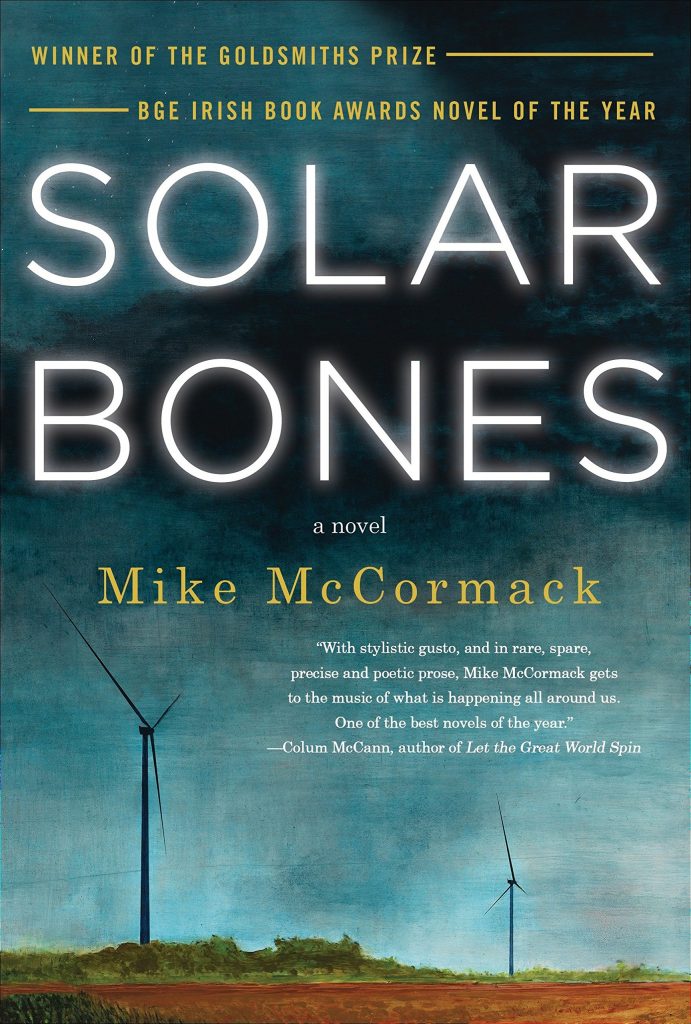 Mike McCormack, Solar Bones (2016)
Mike McCormack, Solar Bones (2016)
The flap copy on my edition of
Solar Bones gives away the ending, or at least the kicker. I’m going to give it away again, now, so look away if you’re one of those people who clutches their pearls at “spoilers,” as if one could spoil great literature by detailing any point of its plot. So: Marcus Conway is dead. And in this exceptional, strange novel, whose present action is no more than a few hours on All Souls’ Day, Marcus sits at his kitchen table and recounts the day of his death—and much of the life that came before it—in one book-length sentence, an incantatory ode to small town life in western Ireland. But the experimental formatting isn’t even the most impressive feature of the novel—I mean, before this I never would have imagined that I could be so enchanted by a book largely about the daily habits and various relationships and minor work dramas of a middle-aged civil engineer. What magic is that?
And ultimately, that’s what is so profound about this novel: it takes something quite straightforward—a regular person’s life—and presents it so carefully, so lyrically and specifically, that it can’t help but become cosmic, philosophical, a whole world to wonder at. This is why the ending—whether you know it’s coming or not—is so gutting. It’s an apocalypse, a small one, and you feel it, even as the cars continue to stream by outside your bedroom window.
–Emily Temple, Senior Editor
 Mike McCormack, Solar Bones (2016)
Mike McCormack, Solar Bones (2016)